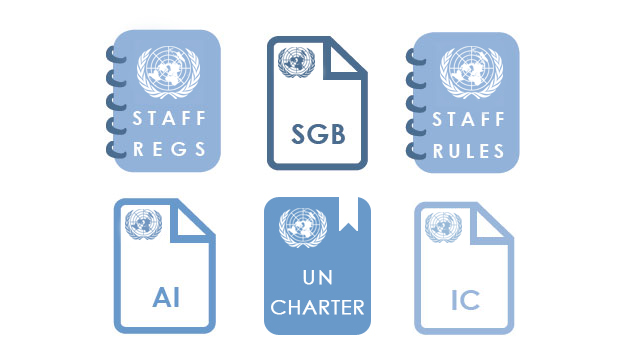
For an international civil servant, it is not enough to deliver the expected programmatic results. We must also embody the highest standards of efficiency, competence and integrity in our daily work and in representing the United Nations.
The Charter of the UN, together with the Staff Regulations and Rules and administrative issuances serve as the Organization’s legislative framework, defining obligations of management and staff.
In joining the United Nations we declare and promise to respect the obligations incumbent upon us as set out in the Staff Regulations and Rules.
Where can I find the Regulations and Rules?
The following resources are available on the HR Portal:
- HR Handbook: You can browse by category, index and source to find the relevant Staff Regulations, Staff Rules, Secretary-General’s Bulletins, and Administrative Instructions.
- Duties, Obligations and Privileges: Here you will find more information on the meaning of our duties, obligations and privileges, as well as what is expected of you as a staff member.
The Organization also offers learning opportunities and self-study resources, such as the Manager’s Toolkit, to support staff and managers in embracing their responsibilities.
How can I find out if there is something new?
You can easily subscribe to receive any new Secretary-General Bulletins (SGBs), Administrative Instructions (AIs) and Information Circulars (ICs) to your email inbox through eSubscription at http://undocs.org/. Staff are strongly encouraged to keep abreast of new issuances.
What if someone breaches the Standard of Conduct, Regulations or Rules?
Each one of us is responsible for acting in accordance with the provisions the Organization has established. Staff members have the duty to report cases of suspected misconduct either to a higher-level official, whose responsibility it is to take appropriate action, or to the Office of Internal Oversight Services (OIOS).
Staff members are also entitled to make reports directly to the Office of Internal Oversight Services, without the need for prior consultation with their supervisor or the head of department.
If you are not sure how to proceed, you may also contact the Office of the Ombudsman or the Ethics Office for advice.
